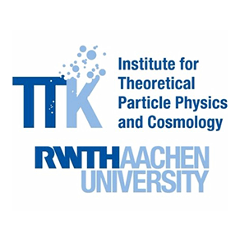TOPO (Time-Ordered Provable Outputs) is a cryptographic protocol for verifying the results of cosmological parameter inference. Topo in Spanish is Mole, which gives the idea of blinding.
| Authors: | Santiago Casas, Christian Fidler |
|---|

| TOPO-Cobaya Source: | |
|---|---|
| TOPO Source: | |
| Documentation: | Same as Cobaya's documentation, see below. |
| TOPO Documentation: | At TOPO's Github |
| TOPO paper: | Time Ordered Provable Outputs arXiv:2411.00072 |
| Installation: | Only development mode at the moment.
## Create a new fresh environment and install dependencies ## Make sure your python version is 3.9 or above (if needed, use python3 or python3.9.x in your system)
|
| Cobaya cosmological installation: | For installing all cosmological codes.
|
This section explains how to run and verify an example analysis with TOPO-Cobaya.
The example run is a simple Gaussian mixture likelihood.
The script to run this analysis is located at scripts/gaussianmix.yaml.
It contains a random seed, which is necessary for the verification process to be reproducible.
Type topocobaya -h in the command line to see the available commands.
:Copy the topo/params.json.template file to topo/params.json and modify it to your needs.
| Create a new private key: | encrypt your key with a password for more security
|
|---|---|
| If you already have a private key: |
|
| Freeze your analysis pipeline: | this creates a pre-commit object
|
| Run your analysis: | This creates chains at
|
| Generate proof of your analysis: | this creates the Merkle tree and the proof object
|
| Verify the proof of your analysis: |
|
If the verification is successful, you will see the following message: Full Verfiication completed! sTOPOing cobaya!
| TOPO-Cobaya installation of dependencies: | for the example BAO likelihood
|
|---|---|
| Run previous steps using the same commands: | using this script
|
| Author: | Jesus Torrado and Antony Lewis |
|---|---|
| Source: | Source code at GitHub |
| Documentation: | Documentation at Readthedocs |
| Licence: | LGPL + bug reporting asap + arXiv'ing of publications using it (see LICENCE.txt for details and exceptions). The documentation is licensed under the GFDL. |
| E-mail list: | https://cosmocoffee.info/cobaya/ – sign up for important bugs and release announcements! |
| Support: | For general support, CosmoCoffee; for bugs and issues, use the issue tracker. |
| Installation: | pip install cobaya --upgrade (see the installation instructions; in general do not clone) |




Cobaya (code for bayesian analysis, and Spanish for Guinea Pig) is a framework for sampling and statistical modelling: it allows you to explore an arbitrary prior or posterior using a range of Monte Carlo samplers (including the advanced MCMC sampler from CosmoMC, and the advanced nested sampler PolyChord). The results of the sampling can be analysed with GetDist. It supports MPI parallelization (and very soon HPC containerization with Docker/Shifter and Singularity).
Its authors are Jesus Torrado and Antony Lewis. Some ideas and pieces of code have been adapted from other codes (e.g CosmoMC by Antony Lewis and contributors, and Monte Python, by J. Lesgourgues and B. Audren).
Cobaya has been conceived from the beginning to be highly and effortlessly extensible: without touching cobaya's source code, you can define your own priors and likelihoods, create new parameters as functions of other parameters...
Though cobaya is a general purpose statistical framework, it includes interfaces to cosmological theory codes (CAMB and CLASS) and likelihoods of cosmological experiments (Planck, Bicep-Keck, SDSS... and more coming soon). Automatic installers are included for all those external modules. You can also use cobaya simply as a wrapper for cosmological models and likelihoods, and integrate it in your own sampler/pipeline.
The interfaces to most cosmological likelihoods are agnostic as to which theory code is used to compute the observables, which facilitates comparison between those codes. Those interfaces are also parameter-agnostic, so using your own modified versions of theory codes and likelihoods requires no additional editing of cobaya's source.
If you use cobaya, please cite its pre-print, arXiv:2005.05290, and its ASCL record, ascl:1910.019.
To appropriately cite the packages (samplers, theory codes, likelihoods) that you have used, simply run the script cobaya-bib with your input file(s) as argument(s), and you will get bibtex references and a short suggested text snippet for each module mentioned in your input file. You can find a usage example here.
Thanks to J. Lesgourgues and W. Handley for support on interfacing CLASS and PolyChord respectively.
Thanks too to G. Cañas Herrera, A. Finke, X. Garrido, S. Heimersheim, L. Hergt, C. Hill, P. Lemos, M.S. Madhavacheril, V. Miranda, T. Morton, M. Rashkovetskyi, J. Zunz and many others for extensive and somewhat painful testing.



